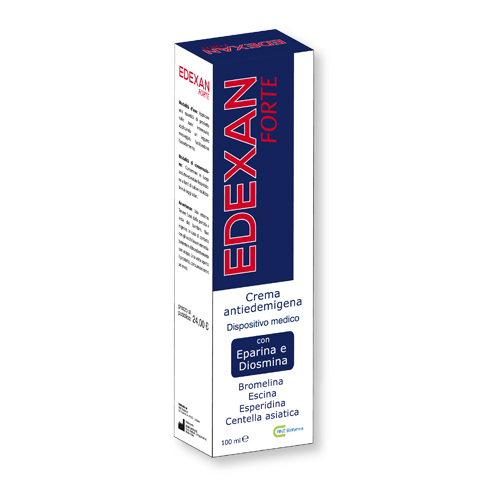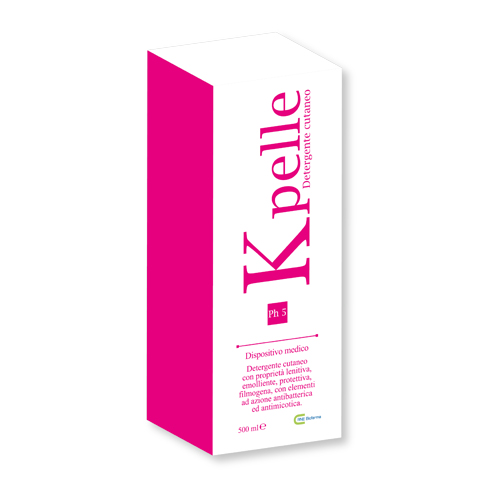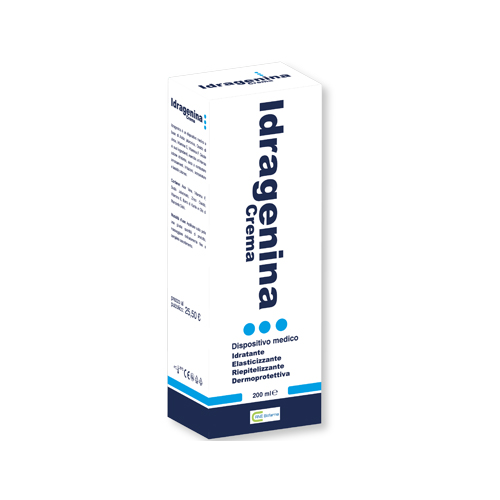Una linea di Prodotti studiata per fornire un delicato approccio al trattamento di Infiammazioni e Infezioni delle vie urinarie, per prevenire e trattare problematiche di Insufficienza circolatoria, microcircolatoria, stasi venosa e crisi emorroidaria, per la delicata Detersione cutanea e Igiene intima, e per fornire un’ottimale Idratazione e Protezione della cute nella donna in gravidanza e non.
Confezione: 15 bustine A + 15 bustine B
Posologia consigliata: In fase acuta, anche come integrazione alla terapia antibiotica, assumere 1 bustina A (probiotico) al mattino e 1 bustina B (acidificante) alla sera per 15 giorni di trattamento.
Nella profilassi delle infezioni urinarie recidivanti, assumere 1 bustina A (probiotico) al mattino e 1 bustina B (acidificante) alla sera per 15 giorni di trattamento da ripetere ciclicamente.
Prodotto a base di Lactobacillus acidophilus (Bustina A) e Cranberry (Mirtillo rosso), L-metionina, Bromelina 2500 GDU, Vitamina C, D-Mannosio (Bustina B), che può risultare un valido approccio naturale per favorire le fisiologiche funzioni dell’apparato urinario maschile e femminile.
Confezione: Flacone da 300 ml con misurino
Posologia consigliata: 10-20 ml da diluire in 1-2 litri di acqua da assumere nel corso della giornata
Prodotto a base di Betulla, Tarassaco, Gramigna, Phyllantus niruri, Cedracca e Tanaceto, che risulta utile per favorire il drenaggio dei liquidi corporei e la funzionalità delle vie urinarie.
Confezione: 20 compresse da 1300 mg
Posologia consigliata: 1 compressa al giorno
Prodotto a base di Palmitoiletanolamide (PEA), Salice bianco e.s., Harpagophitum procumbens e.s. e Ornitina KG la cui associazione favorisce una spiccata azione antiossidante che può risultare utile per il ripristino della fisiologica funzionalità cellulare dell’apparato urogenitale.
Confezione: 30 compresse da 1300 mg
Posologia consigliata: 1-2 compresse al giorno
Prodotto a base di Bromelina 2500 GDU, Esperidina, Diosmina, Escina e Centella asiatica la cui associazione favorisce una spiccata azione antiedemigena che può risultare utile per il ripristino delle fisiologiche funzionalità del microcircolo venoso in caso di edemi post-operatori, crisi emorroidarie.

Confezione: Tubo da 100 ml
Modalità d’uso: Applicare sulle zone interessate una giusta quantità di prodotto. Massaggiare delicatamente no a completo assorbimento
Prodotto a base di Bromelina 2500 GDU, Esperidina, Diosmina, Escina, Centella asiatica ed Eparina la cui associazione favorisce una spiccata azione antiedemigena che può risultare utile per alleviare il senso di pesantezza, gonfiore e dolorabilità degli arti inferiori in caso di alterazioni del microcircolo venoso.

Confezione: Flacone da 500 ml
Non contiene SLES, PARABENI, NICKEL
Modalità d’uso: Applicare una piccola quantità di prodotto sulla pelle bagnata, massaggiare e risciacquare.
Detergente cutaneo a pH 5 a base di Glicerina, Aloe, Avena, Camomilla, Malaleuca, Acido Lattico, Climbazolo e Dimeticone ad azione idratante, lenitiva, emolliente, dermoprotettiva, antibatterica, antimicotica e filmogena.

Confezione: Flacone da 500 ml
Non contiene SLES, PARABENI, NICKEL
Modalità d’uso: Applicare una piccola quantità di prodotto sulla pelle bagnata, massaggiare e risciacquare.
Detergente intimo a pH 3.5 a base di Glicerina, Aloe, Avena, Camomilla, Malaleuca, Acido Lattico, Climbazolo e Dimeticone ad azione idratante, lenitiva, emolliente, dermoprotettiva, antibatterica, antimicotica e filmogena.
Confezione: Flacone da 250 ml
Non contiene SLES, PARABENI, NICKEL
Modalità d’uso: Applicare una piccola quantità di prodotto sulla pelle bagnata, massaggiare e risciacquare.
Olio detergente eudermico a base di Olio di Mandorle dolci, Olio di Jojoba, Vitamina E, Vitamina F, Camomilla, Insaponificabile di Olivo, Omega 3 (EPA e DHA) e Polidocanolo ad azione idratante, lenitiva, normalizzante, antinfiammatoria e antipruriginosa.
Confezione: Flacone da 50 ml
Non contiene PARABENI, DERIVATI SILICONICI
Modalità d’uso: Applicare sulla zona interessata massaggiando delicatamente.
Gel Ano-genitale a base di Acido ialuronico, Vitamina E, Vitamina A, Aloe, Ribes nigrum, Camomilla, Calendula, Lavanda, Acido lattico, Acido glicirretico, Polidocanolo e Metil lattato ad azione riepitelizzante, antinfiammatoria, antipruriginosa, lenitiva, idratante, dermoprotettiva, lubrificante e rinfrescante.
Confezione: Flacone da 50 ml Modalità d’uso: Applicare sulla zona interessata massaggiando delicatamente. Crema ginecologica a base di Acido ialuronico, Vitamina E, Vitamina A, Aloe, Ribes nigrum, Camomilla, Calendula, Lavanda, Acido lattico, Acido glicirretico, Polidocanolo e Metil lattato ad azione riepitelizzante, antinfiammatoria, antipruriginosa, lenitiva, idratante, dermoprotettiva, lubrificante e rinfrescante.Miogin
Non contiene PARABENI, DERIVATI SILICONICI

Confezione: 40 compresse da 1300 mg
Posologia consigliata: 1-2 compressa al giorno
Prodotto a base di Palmitoiletanolamide (PEA), Acido alfa lipoico, L-Acetil carnitina, la cui associazione favorisce una spiccata azione antiossidante, neurotrofica e protettiva, favorendo il trofismo del sistema nervoso.
Confezione: Tubo da 200 ml Prodotto a base di Acido Ialuronico, Ossido di Zinco, Vitamina E, Vitamina F, Ceramidi I III e IV, Olio di Mandorle dolci e Burro di Karitè, in grado di svolgere un’intensa azione multifattoriale idratante, elasticizzante, riepitelizzante e dermoprotettiva.
Idragenina – Dispositivo Medico
Modalità d’uso: Applicare sulla pelle una giusta quantità di prodotto. Massaggiare delicatamente fino a completo assorbimento